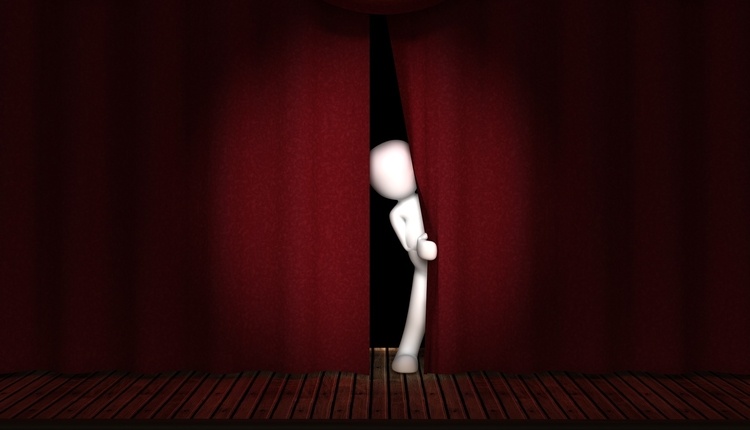Beating Stage Fright: How to Confidently Present Like a Pro

Giving presentations is part of the job for academics and researchers. But let’s be honest- many people who work in these fields prefer the quiet company of a few lab partners over the spotlight of the stage. When it’s time to stand in front of an audience and talk about your work, you may be one of the many people who experience stage fright. Here we talk about stage fright- what it is, why you feel it, and most importantly, how to overcome it and present confidently like a pro.
What is Stage Fright?
It’s not uncommon to freeze on a stage. Weak knees, a churning stomach, a dizzy feeling- these are all common symptoms of anxiety that you might feel before speaking in front of others. What makes stage fright, also known as performance anxiety, different from ordinary feelings of anxiety is its persistence and its strength. People who experience stage fright feel intense fear and dread of performing in front of others. In its most serious form, it may cause you to turn down opportunities, such as a promotion or an invitation to speak at a large conference. It can harm your confidence and reduce your self-esteem, leaving you feeling alone and embarrassed.
How Can You Reduce Your Stage Fright?
Fortunately, as this is a very common problem, there are numerous techniques and tips that can help you reduce or even eliminate your stage fright. Some things you should try are:
Practice, Practice, Practice!
Being as prepared as possible for a presentation will help build confidence. Say your speech or presentation in front of a mirror, to a pet, or in front of a loved one. The more prepared you are, the easier it will be to continue on stage.
Try Some Relaxation and Breathing Techniques
Feelings of nervousness and intense anxiety are often accompanied by shallow, rapid breathing. Focus and take ten slow, deep breaths from your lower abdomen. This will calm you down. Apps like Calm offer guided breathing exercises. Doing some gentle yoga the morning you have a presentation to give can also help.
Visualize Success
This is a common technique employed by athletes, business leaders, and other performers. Imagine your presentation going perfectly, with the audience leaning forward to hear every word. If you step on stage with this image in your mind, you’re more likely to feel excited rather than anxious.
Visualize Failure
Often, anxiety arises because we fear the unknown. One popular technique is to play the “what if” game. Visualize everything that can go wrong, and then ask yourself, what if that goes wrong? What is the worst that could happen? Embracing the possibility of failure can sometimes bring relief from anxiety as you realize that the “worst that could happen” is, in fact, not so bad.
Break the presentation down
Rather than a 30-minute presentation, think of it in five-minute chunks. When you’re on stage, just focus on getting through each five-minute part, and before you know it, the presentation will be done.
Keep Your Mistakes to Yourself
Have you ever finished a presentation and immediately thought of everything that went wrong, only to realize that no one else noticed? 9 times out of 10, the audience will never realize that what you said or did was not part of the plan. Don’t talk about your mistakes, and no one else will either, because they won’t know you made any.
Stage fright affects everyone a bit differently, so it’s a good idea to try a few different methods to battle your fears. Above all, don’t let stage fright defeat you! Keep trying and it will get better.










Great post! I am actually getting ready to across this information, It’s very helpful. Also great with all of the valuable information you have Keep up the good work you are doing well.
Helped tremendously!!!!!!!!!!!!!
I have big time stage fright and this helped big time !!
I also have stage fright. I’m really afraid of speaking with a lot of people even I was just Introducing myself. When I’m speaking I get nervous and fear and my tears started to fallen. It was really embarrassing. I want to seek help but I’m here in korea and I don’t understand korean language so I really don’t know what to do about it.